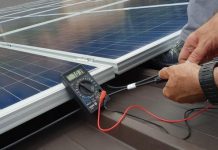The identification of highly efficient sources of alternative renewable and environmentally friendly energy is a priority in the development of modern science. Researchers from Israel have announced considerable success in developing a scientific field that allows them to control the process of hydrogen generation by plants, which will be further used for electricity production.

Microscopic algae have been used as “experimental” samples by the scientists from the laboratory of the University of Tel Aviv. According to the project manager, Iftaha Jacobi, the main problem in obtaining energy from plants was the identification of a “connection point” that allows the use of hydrogen generated by microalgae.
It had been previously known that algae produce hydrogen only in an extremely limited time of activity at dawn hours. However, a more detailed study of Israeli scientists showed that hydrogen is produced throughout the day. It only remained to activate this process and increase its productivity. This was achieved by introducing the enzyme hydrogenase enzyme into microalgae, which made it possible to increase hydrogen production by 400%.
Now, that it is known that plants will be able to produce an energy source (hydrogen) that is already being used, for example, to fuel vehicles, it remains only to introduce this technology on an industrial scale. According to scientists, it will take at least 20 years.










